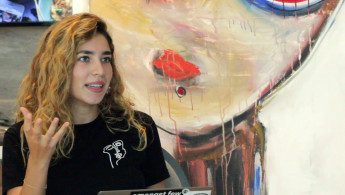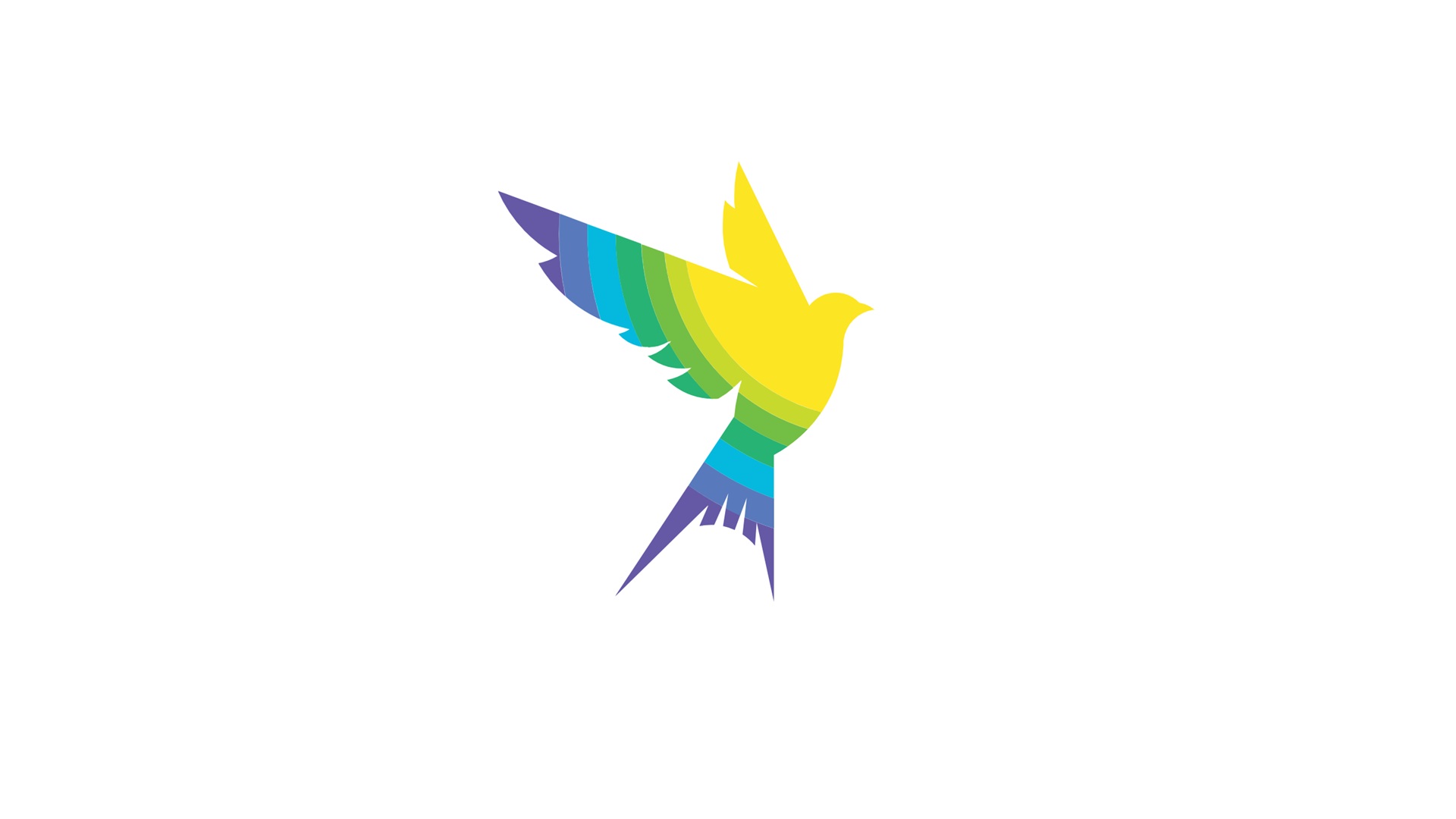'From my heart to Palestine': How Palestinian graphic designer Nour Milhem uses artivism as a voice for the oppressed
“I’m so privileged to have been able to leave, to be educated, to be well-travelled,” says Nour Milhem from her home in Dubai. A graphic designer who was born in Jordan to Palestinian parents, Nour was in her first year of primary school when her family moved to Dubai for her father’s job. “Now, we owe our lives to helping them,” she adds, referring to the many Palestinians who haven’t been as fortunate as her.
Her family is a pool of nationalities, including Lebanese and Palestinian, but she was lucky to be given a Jordanian passport at birth. Her father, who works in cyber technology, transferred to Dubai for growth opportunities, a city Nour’s family has since called home.
While she feels as though art doesn’t always contain a purpose, her work has multiple objectives. Her first is encouraging people to embrace their childish creativity. “As we get older, we limit our creativity,” she explains. “A book is a book and an apple is an apple.
“Of course they are what they are, but we often don’t look beyond that,” she continues. Her work helps people to see that 'beyond'.”
Her second aim is to spread positivity and good energy. And her third, and perhaps most important, is to raise awareness about current issues and affairs. She wants people to feel comfortable enough to express their feelings about certain events, and her work provides the space to do exactly that.
More recently, Nour began to post more of her Palestinian-focused pieces on Instagram, which began to gain traction from users from across the internet. She says it was then that she realised she owed her life to ensuring those stuck in conflict, with no platform, were given a place to be vocal. Not only because she’s Palestinian, but because she believes it’s her “purpose” to help them.
Although the 25-year-old says she can’t directly help people living in Palestine, her work indirectly sparks hope by inspiring those who feel they can’t help to speak up and express themselves freely.
|
|
While a lot of her work is designed to induce joy and happiness, as well as give a hand to those who are suffering — Nour also creates pieces under the umbrella of artivism (art activism).
Outside her full-time job and design work, she will be running a workshop for Palestinian children in collaboration with a brand and other creatives. It will serve as both a therapy and a place for them to unleash their creativity.
Nour is a smiley, bubbly artist, her curls bouncing every time she leans in to listen to my questions. Much like her wide eyes, one of her pieces stares at me from the background. It draws on qualities from Picasso’s and Dalí’s collections, her two main artistic inspirations.
“He delves deep into the creative realm and taps into the unconscious mind that people are so afraid to look into,” she says of her fascination with Dalí.
Her third inspiration is Banksy. “His artwork creates a dialogue throughout the world,” she says. “As creatives, we should be creating more work that makes people think about issues in life.”
|
|
From my heart to Palestine is her recent most treasured piece, which depicts a hand holding a poppy flower, one of Palestine’s national flowers. “When I was creating this, it really was from my heart to Palestine,” she adds.
Nour most enjoys work that people relate to because, as an artist and self-proclaimed introvert, she doesn’t get many opportunities to connect with the outside world. “You’re in this bubble. While you could create work that you love yourself when someone else connects with your work, that’s quite magical,” she says.
From a sister based in Saudi Arabia working with artists, to a mother in interior design, to her Palestinian artist grandmother, it seems only natural that Nour was drawn towards fine arts as a young person. It was her grandfather, however, who pushed her to go into graphic design, after he noticed her flair for deeper and more meaningful artistic skills.
Nour speaks to me with flawless pronunciation, confessing that though her mother tongue is Arabic, growing up in Dubai has meant it has fallen to the back of her languages. After school, she moved to London for four years, where she acquired a degree at the University of the Arts in graphic design. With a Jordanian passport, however, she struggled to find a job and had to return to Dubai a year after graduating.
Nour and many activists like her feel a duty to provide a platform for Palestinians, but she feels they are being silenced
It’s taken Nour a while to settle again, but she recognises how fortunate she has been in life. “Being back in Dubai has been a struggle, but it’s home.
“It’s home because I grew up here, my family lives here, and it’s all I know,” she says of the city. “But do I feel like I belong here culturally? Not really. I feel like I’m more Palestinian than anything else.” Where Jordan can be quite limiting, Dubai has given her a wide array of opportunities.
But from the comfort of her home, she has felt constant oppression, with the lack of freedom of expression. “We can’t type out ‘Palestine’ without being censored,” she points out. “It’s insane that we can’t even type out our own country.”
Nour and many activists like her feel a duty to provide a platform for Palestinians, but she feels they are being silenced. She worries that without them — the Palestinians’ only form of media — they will be left voiceless.
Following a recent call with an activist, she encountered an individual from a location she couldn’t disclose, who hacked them. “It shows how much we’re being watched all the time,” she says.
|
|
Growing up, her parents constantly reminded Nour of her roots, through lessons on Palestinian culture and history, and oppression faced by not only Palestinians but individuals from across the Middle East. But sometimes, she’d have to avoid conversations around her nationality. “It’s not that we’re not proud, but in situations where we know we’ll get in trouble, we have to keep it to ourselves.”
While she was taught thoroughly on American history in school, Nour wishes she’d been taught more about Middle Eastern and Palestinian history.
Today, the designer works with Sense design studio in Dubai, providing art therapy to young children from Palestine. Her future is not a clear trajectory yet, but she is sure of one thing: “I hope to continue to help those oppressed and use my artwork for the better.”
Covid-19 taught her patience and recognising the power she has to make the most of any situation. When the world was turning on its head, inspiration is what she struggled with the most.
“It all became very screen-focused,” she explains. “But artists seek inspiration from travelling, art galleries, and people interaction.” This was all stripped away with the pandemic.
The designer says she can’t complain, though. “I love my team and I love what I do,” she says, smiling. “They’re constantly looking after me and my goals, which motivates me to work longer hours than necessary.”
Olivia is a freelance journalist and an aspiring Middle East correspondent finishing her journalism degree at City, University of London.
Follow her on Twitter: @oliviarafferty6



![President Pezeshkian has denounced Israel's attacks on Lebanon [Getty]](/sites/default/files/styles/image_684x385/public/2173482924.jpeg?h=a5f2f23a&itok=q3evVtko)



 Follow the Middle East's top stories in English at The New Arab on Google News
Follow the Middle East's top stories in English at The New Arab on Google News


